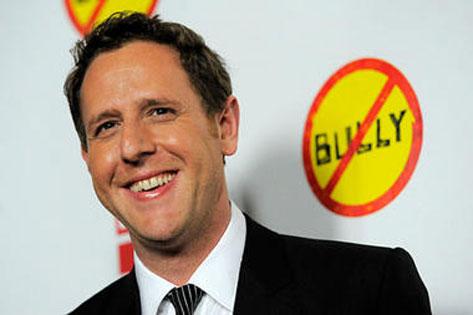It's easy to say "only in America", but school children across the world face the exact same psychological and physical bullying every day.
Lee Hirsch's documentary Bully, follows five US children who walk into the firing line every school day.
There's Ja'Meya Jackson, a 14-year-old girl who faced 45 criminal charges after pulling a gun on the kids who bullied her on the school bus, Kelby Johnson, a lesbian teen shunned by her community in Oklahoma, and the film's central character, 12-year-old Alex Libby, who faces taunts and violence daily from his peers and siblings.
To Hirsch, the film's basis was personal: he refers to himself as "a kid who was bullied pretty intensely".
"In my work I've always tried to find stories that mean something. I've tended to look for underdog stories, ways that people can overcome really difficult struggles, what are the activators, what are the motivators behind that," he said.
For a year, Hirsch was the fly on a wall in Alex's school in Sioux City, Iowa, and it didn't take long for him to blend into the wallpaper, to the point where kids carried on their daily bullying in front of his lens.
"That was life in the school, and once those walls fade and they're not thinking about the camera anymore, life just goes on," he said.
It's nigh on impossible for an audience member to sit through the film without being moved to tears, and Hirsch wasn't immune during the filming process.
The "greatest pain", he says, comes from watching those families who have lost children to suicide as a result of bullying.
Youthline worker Ellen Anderson says while the film was emotionally challenging to watch, it's important adults be confronted with what young people are experiencing.
"Making people aware of the problem is a very brave thing to do," she said.
While schools and parents have an important role to play, Anderson says it's important people are equipped to take on the role of the "ethical bystander" - someone who's not afraid to stand up and say "hey, that's not cool".
"It's just looking out for each other, really. Having support networks so it's not just one person standing up to a group of bullies - it's a whole community, it's a whole family, it's a whole school," she said.
However, Anderson says the changing nature of bullying - with the rising use of text messaging and social media - means bullying is virtually inescapable for victims.
Hirsch agrees with Anderson that a culture shift is needed, calling it a "hearts and minds battle".
"It gets to the heart of, `what are we teaching our kids?'," he said.
"What does it mean to have empathy, what does it mean to bring those kinds of conversations into the classroom, what does it mean to [be an ethical bystander] and how do those lessons manifest throughout the life cycle?"
Hirsch has spoken to educators and other stakeholders around the world about bullying, and believes a school's climate of safety should be equally important to its achievements in reading, maths and sports.
In the meantime, he is hopeful Bully's audiences will continue the conversation about what needs to change.
You can watch the trailer for Bully here:
Bully (Rated M) will be shown at Palace Cinemas from August 23.
For more information, visit: http://www.palacecinemas.com.au










__small.jpg)








__small.png)










